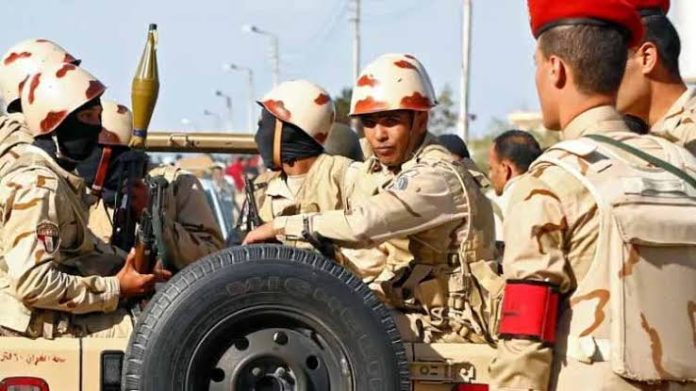Twitter (X)
Somali Magazine – People’s Magazine
The Egyptian Ministry of Defence has confirmed its intention to deploy troops to Somalia under the African Union’s upcoming peacekeeping framework. In a video released on 27 November 2024, Egyptian Defence Minister Lieutenant General Abdel Mageed Saqr was seen inspecting soldiers preparing for the mission. Although the specific mission was not named, this move aligns with Egypt’s proposal earlier this year to contribute to African Union peacekeeping efforts in Somalia.
The video showcased elite units, including Thunderbolt Forces and Airborne Forces, alongside advanced equipment such as Caiman mine-resistant ambush-protected vehicles (MRAPs) and Fahd armored personnel carriers. The demonstration emphasized casualty evacuation techniques, signaling the preparedness of Egypt’s forces for high-stakes operations in a challenging environment.
Background: Transitioning to AUSSOM
The African Union Transition Mission in Somalia (ATMIS) is set to transform into the African Union Support and Stabilization Mission in Somalia (AUSSOM) in 2025. The goal of AUSSOM is to further stabilize the region by enhancing local governance, rebuilding critical infrastructure, and neutralizing insurgent groups such as al-Shabaab. However, the transition still requires approval from the United Nations Security Council.
Egypt’s involvement is seen as part of a broader regional effort to address insecurity in Somalia. The decision follows an October summit in Asmara between the presidents of Egypt, Somalia, and Eritrea, during which Egypt proposed its peacekeeping contribution.
Somalia’s Concerns Over Ethiopia’s Role
The Somali Ministry of Foreign Affairs has raised concerns about Ethiopia’s potential involvement in AUSSOM. On 23 October, Mogadishu announced its opposition to Ethiopian troop participation, citing Addis Ababa’s controversial agreement with Somaliland. The agreement, signed on 1 January 2024, allows Ethiopia to build a naval base in Somaliland in exchange for recognizing its independence, a move Somalia deems illegal.
This geopolitical tension underscores the delicate balancing act within the region as countries work to address Somalia’s security challenges while navigating disputes over territorial integrity and sovereignty.
Egypt’s Strategic Interest in Somalia
Egypt’s deployment to Somalia is part of its broader strategy to expand its influence in Africa, particularly in regions of strategic importance. By joining AUSSOM, Egypt aims to strengthen its role as a key player in African security and stability initiatives.
Additionally, Egypt’s involvement could help counterbalance the growing influence of other regional powers, such as Ethiopia, whose relationship with Egypt remains strained due to disputes over the Grand Ethiopian Renaissance Dam (GERD). Supporting Somalia’s stabilization aligns with Cairo’s broader goal of fostering stability in the Horn of Africa.
Challenges Ahead for AUSSOM and Egypt’s Forces
The operating environment in Somalia presents significant challenges, including persistent threats from al-Shabaab militants, political instability, and humanitarian crises. Egyptian forces, though well-equipped and highly trained, will face a complex landscape where success depends on effective collaboration with local and international partners.
The transition from ATMIS to AUSSOM also brings logistical and operational challenges. Ensuring the mission’s success will require clear mandates, adequate funding, and robust coordination among contributing nations and Somali authorities.
Implications for Regional Security
Egypt’s deployment to Somalia signals a growing commitment among African nations to address regional security issues through collective action. It also highlights the evolving dynamics of the Horn of Africa, where international and regional actors continue to vie for influence.
As the AUSSOM framework takes shape, Egypt’s participation will likely play a critical role in shaping the mission’s impact and long-term success. The move also underscores the importance of unity and cooperation among African nations in addressing shared security challenges.

